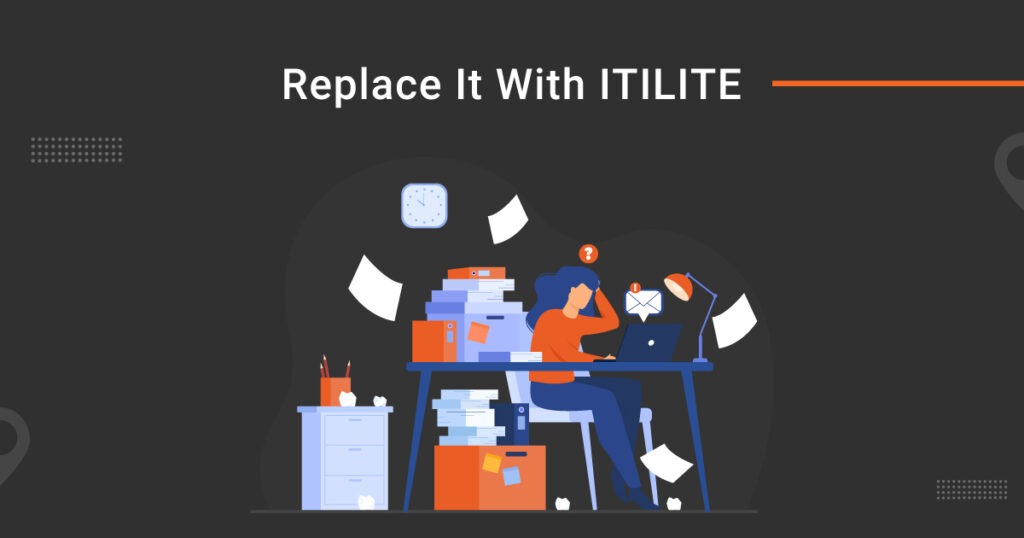
Emotional intelligence (EI) is a set of social and emotional skills that enable individuals to recognize, understand, manage, and effectively use their own emotions and the emotions of others.
Emotional intelligence in customer service is the ability of individuals to recognize, interpret, and effectively respond to the emotions and needs of customers. It encompasses the capacity to empathize with customers, anticipate their emotions and requirements, and tailor interactions and services accordingly.
Why do Subscribers of SaaS Products Require Customer Service?
SaaS (Software as a Service) products, like any other products or services, require customer service for several important reasons.
Onboarding and Training: Customer service is there to help new users get started. They guide them on how to set up and use the software effectively. This is important so your customers can make the most out of it right from the beginning.
Technical Support: Sometimes, things go wrong with the software. Emotional intelligence in customer service is crucial because it helps fix these issues quickly. This way, your customers can keep using the software without any hiccups.
Answering Questions and Requests: Customers may have all sorts of questions about the SaaS product. They might want to know how a specific feature works or request help for certain things. Customer service is there to provide answers and assist with these requests.
Feedback for Improvement: Your customer service teams often hear what your customers have to say. This feedback is like gold because it helps your company make the software even better. So, they serve as a valuable source of input for improvement.
Handling Complaints: Sometimes, customers get upset or have complaints. Your SaaS customer service teams step in to deal with these situations. They work to turn negative experiences into positive ones, which is super important for keeping your customers happy.
Why is High Emotional Intelligence Essential for Customer Service Representatives
High EI is a critical asset for customer service representatives. Representatives who possess high EI are better equipped to navigate the complex web of human emotions that often accompany customer interactions.
Managing Your Emotions: It’s crucial for you, as a customer service representative, to control your own emotions and stay composed, especially when dealing with upset or frustrated customers. This helps prevent problems from getting worse and paves the way for finding effective solutions.
Understanding Non-Verbal Clues: Pay close attention to the non-verbal signs your customers give off, like their tone of voice, body language, and how fast they speak. These cues can give you extra insights into their emotions and help you respond more effectively.
Building Connections: Over time, you can build stronger relationships with customers by remembering their names and showing genuine interest in how they’re doing. This makes them feel valued and can lead to greater trust and loyalty.
Setting Boundaries: Knowing when and how to set boundaries during interactions is important. Your emotional intelligence can guide you in handling challenging situations with professionalism and empathy, maintaining a positive customer experience.
How Emotional Intelligence can help in Providing Good Customer Service?
Emotional intelligence can significantly enhance the provision of good customer service in several ways:
Empathetic Customer Service
Empathy is a really important part of providing great customer service. It’s especially crucial in customer support. When your customer service team has strong emotional intelligence, they can connect with customers on a deeper level by understanding and sharing their emotions and experiences. For instance, using phrases like, “I know how frustrating that must be” or “I’m here to help you through this” shows empathy.
Here’s how Emotional intelligence in customer satisfaction can make a difference:
Active Listening: Empathetic customer service agents are good at actively listening to customers without making judgments. This makes customers feel like they’re really being heard and that their concerns matter.
Reducing Customer Frustration: When customer service reps acknowledge and empathize with a customer’s frustration or unhappiness, it can often calm down tense situations. Customers appreciate feeling understood, and this can lead to more positive outcomes.
Personalized Interactions: Empathetic agents can tune into a customer’s emotions. This allows them to respond in a way that provides emotional support and comfort when it’s needed, making interactions more personal and effective.
Handling Customer Complaints
Addressing customer complaints is a crucial part of providing excellent customer support. When our team uses emotional intelligence, it can turn complaint resolution into an opportunity to make customers happier and more loyal. Here’s how it works:
Solving Problems with Empathy: Representatives with high EI skills handle complaints with empathy. They focus on finding solutions while also acknowledging the customer’s feelings. This approach is very effective in resolving conflicts.
Taking Responsibility: Agents with emotional intelligence take ownership of problems. They’re not afraid to apologize when needed and reassure the customer that their concerns are taken seriously. This can actually change a dissatisfied customer into someone who really supports our company.
Dealing with Angry Customers: Emotional intelligence equips agents with the skills to handle emotional customers, especially those who are upset. They know how to stay calm, show empathy, and remain professional. This helps defuse situations that could otherwise become difficult.
Effective Communication
Effective communication is at the heart of customer support, and emotional intelligence enhances communication in the following ways:
Adaptive Communication: Emotionally intelligent representatives can adapt their communication styles to match the emotional needs and preferences of the customer. This may involve being more empathetic and supportive or providing clear, data-driven explanations depending on the situation.
Clarity and Transparency: You must provide information in a clear and understandable way, which prevents customers from getting confused and frustrated.
Reading Non-Verbal Cues: Your emotional intelligence helps you recognize and respond to non-verbal signals like tone of voice and body language. This makes your responses more tuned in and shows that you understand and care effectively.
Positive Language and Framing: You use positive language and focus on solutions when communicating with customers. The way you frame conversations encourages cooperation and makes customers feel like they’re working together with a partner.
Strategies for Developing Emotional Intelligence in Customer Service
Developing emotional intelligence (EI) in SaaS customer service teams is essential for enhancing customer satisfaction and success. Here are strategies to foster EI within your customer service department:
EI Training and Workshops
Provide formal training and workshops on emotional intelligence. These sessions can educate team members about the importance of EI and equip them with practical skills for empathetic communication, active listening, and conflict resolution.
Role-Playing Exercises
Incorporate role-playing exercises into training programs. These simulations allow team members to practice and refine their emotional intelligence skills in a safe and controlled environment.
Continuous Learning
Encourage team members to engage in ongoing learning and development. Promote the reading of books and articles and ask employees to attend webinars or workshops related to emotional intelligence and effective communication.
Feedback and Coaching
Provide regular feedback and coaching to team members. Offer guidance on how to improve their emotional intelligence and highlight examples of both positive and negative interactions to facilitate learning.
Mentoring and Peer Support
Pair less experienced team members with those who excel in emotional intelligence. Mentoring and peer support can help transfer skills and best practices within the team.
Hiring for Emotional Intelligence
During the recruitment process, prioritize candidates with strong emotional intelligence. Behavioral interview questions and assessments can help identify individuals who are naturally skilled in this area.
Diversity and Inclusion
Foster a diverse and inclusive workplace. A variety of perspectives and backgrounds can enhance emotional intelligence by promoting understanding and empathy.
Experience Exceptional Customer Service With ITILITE
ITILITE is more than just a travel management software; it’s your gateway to smoother, faster, and more productive business travel. At ITILITE, we understand that when it comes to managing business travel, time is money!
Experience the ITILITE Difference
Lightning-Fast Response Time
Our customer service team boasts an industry-best response time of a mere 10 seconds! When you need help or have a query, we’re there, ready to assist at the drop of a hat.
Speedy Resolution
We don’t just stop at quick responses; we’re dedicated to providing you with real solutions in the shortest time possible.
Live Agents for Real-Time Interactions
Our team of highly skilled and dedicated agents is ready to provide immediate, real-time solutions, ensuring that your business travel experience is nothing short of exceptional.
Book a free demo with us today!

















